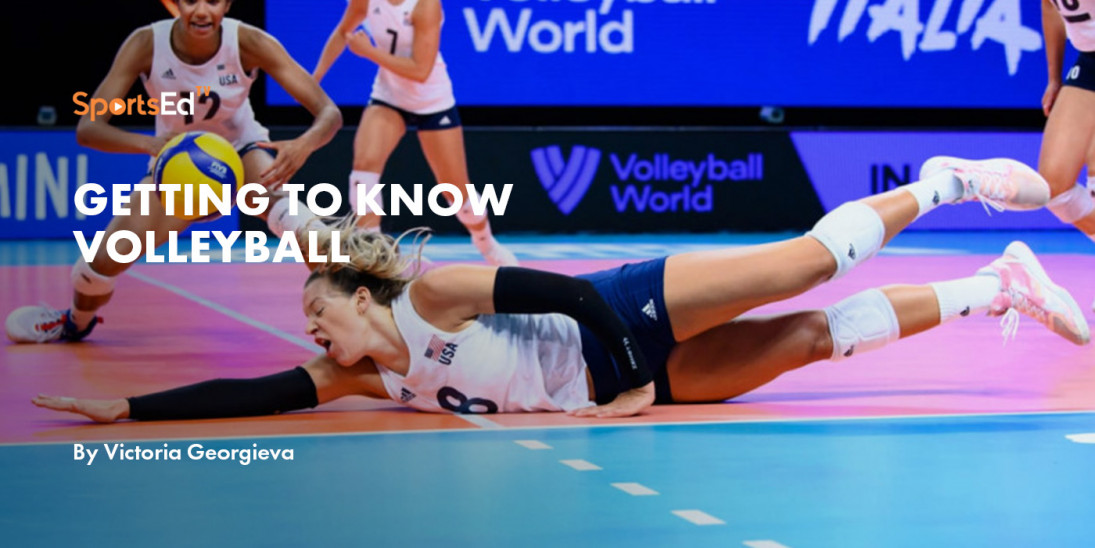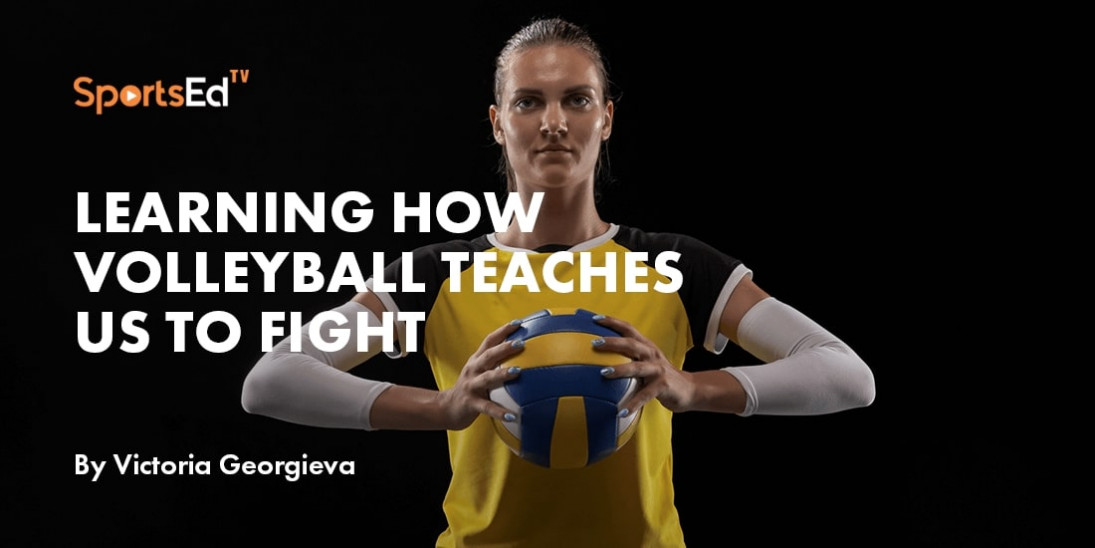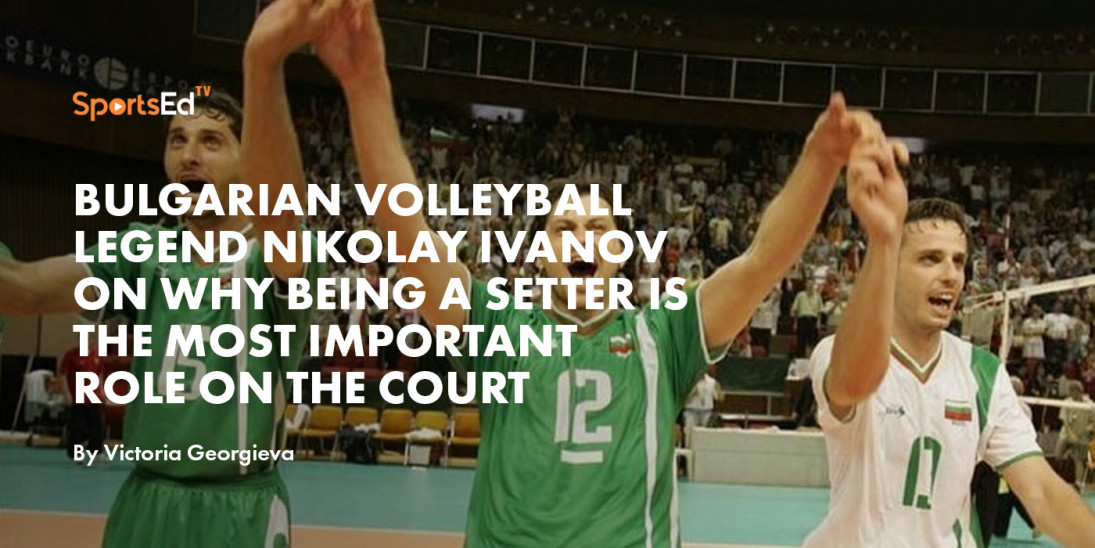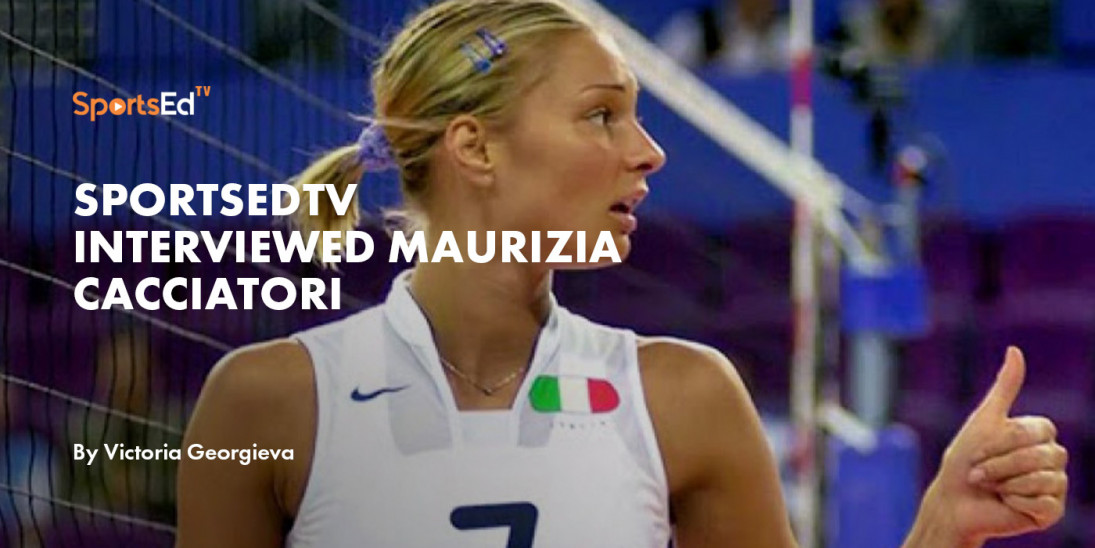Volleyball
Welcome and thanks for visiting...

On Mental Education in Volleyball
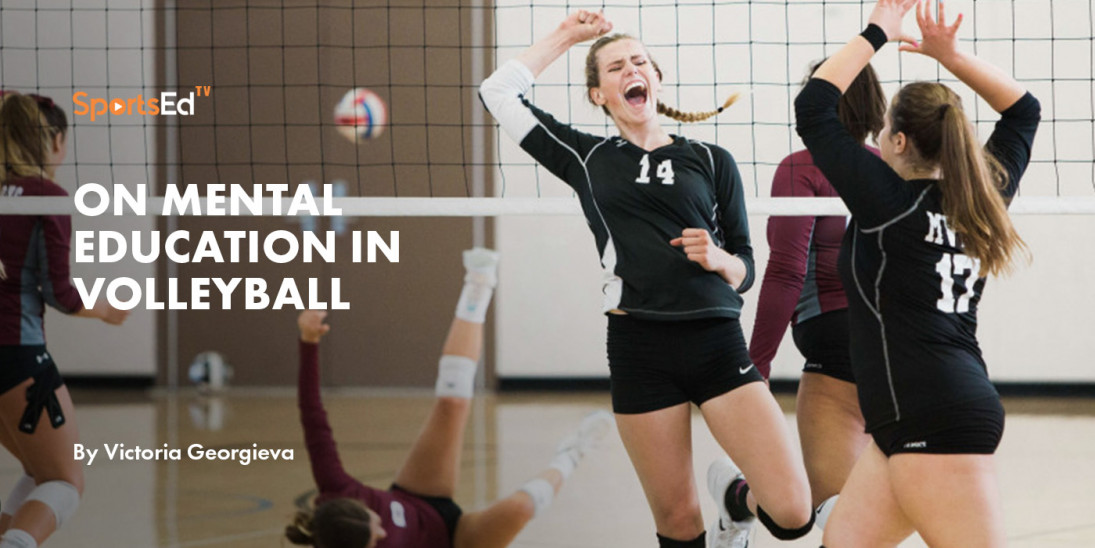
Often, people who are not involved professionally in the Volleyball world don’t realize the stress levels that professional athletes meet on a daily basis and the problematics that might arise from these.
As much as we love the game, and we appreciate all the good moments that it gives us (in the end, this is why we have dedicated our lives to it), I strongly believe that it is important to talk about the problems, too.
.jpg)
Volleyball, as all sports, is a combination of good technical skills, application of tactics, and, of course, good mental approach to the training process and games. However, sometimes, we tend to pay less importance on the mental preparation of the athletes. Focused on improving the technical components, and on explaining the tactics, coaches sometimes forget about the pivotal role of mental health. Actually, it is in such moments when we might see the real differences between a prominent coach and a coach who doesn’t have the real passion for what they are doing on the court. The good ones are always open to the idea of working as a “part-time psychologist” of their team. Luckily, I believe, many of the second group, also start understanding the importance of the mental health work, and are “work-in-progress”.
If you have interest about learning more on how to help your athletes from this perspective, then keep on reading as this piece of information might help you to better understand the different concepts.
Volleyball in the context of today’s society
We live in a ‘crazy’ world, that sometimes is spinning around so fast that our inner selves scream ‘I can’t do this anymore!’. Each one of us is facing such moments, and if someone comes to you and says, they have never had such situations, don’t trust them.
This crazy “spinning around” can happen to your professional athletes, too, no matter their age or their success. The overwhelming feeling of exhaustion, of incapability to keep going on, might be a serious problem that you, as a coach, should be prepared to deal with.
Open up!
I remember, some years ago, two of the most popular players by that time (U.S. Matt Anderson and Bulgaria’s Nikolay Penchev), had reported some problems related to depression and burnout. Whatever the reasons back then (if fully related to the Volleyball court or based also on other, personal experiences), it was clear that Volleyball players do suffer and after all, are human beings, too.
Matt, who to date is a proud father of a son, and has been back to his Volleyball career, wasn’t that happy in 2014. Surprisingly, he announced that he would take a year off playing overseas. The reason? Depression.
In 2016, before the season with the national team kicked off, the famous Penchev of Bulgaria, also asked for a longer break. The reason? Burnout, or at least, this is what media was telling by that time.
As hard as it has been for both of them by that time (something that I can only suppose given the fact that I don’t know either of them personally), it requires a lot of… pain to speak up.
On a more positive note, these two cases, at least for me as a journalist, were a reminder that mental breakdowns can happen to everybody. Even to the biggest stars. And them speaking up, would mean a lot to the broader group of players dedicating their lives to Volleyball.
As odd as it might sound, opening up might be actually be the first step towards working on a better mental health. Just ask the psychologists! And this applies to the sports hall, too. Hopefully, the stigma of “just train and don’t talk” might be deleted from our heads thanks to such moments of courage when influential personalities speak up frankly about their problems.
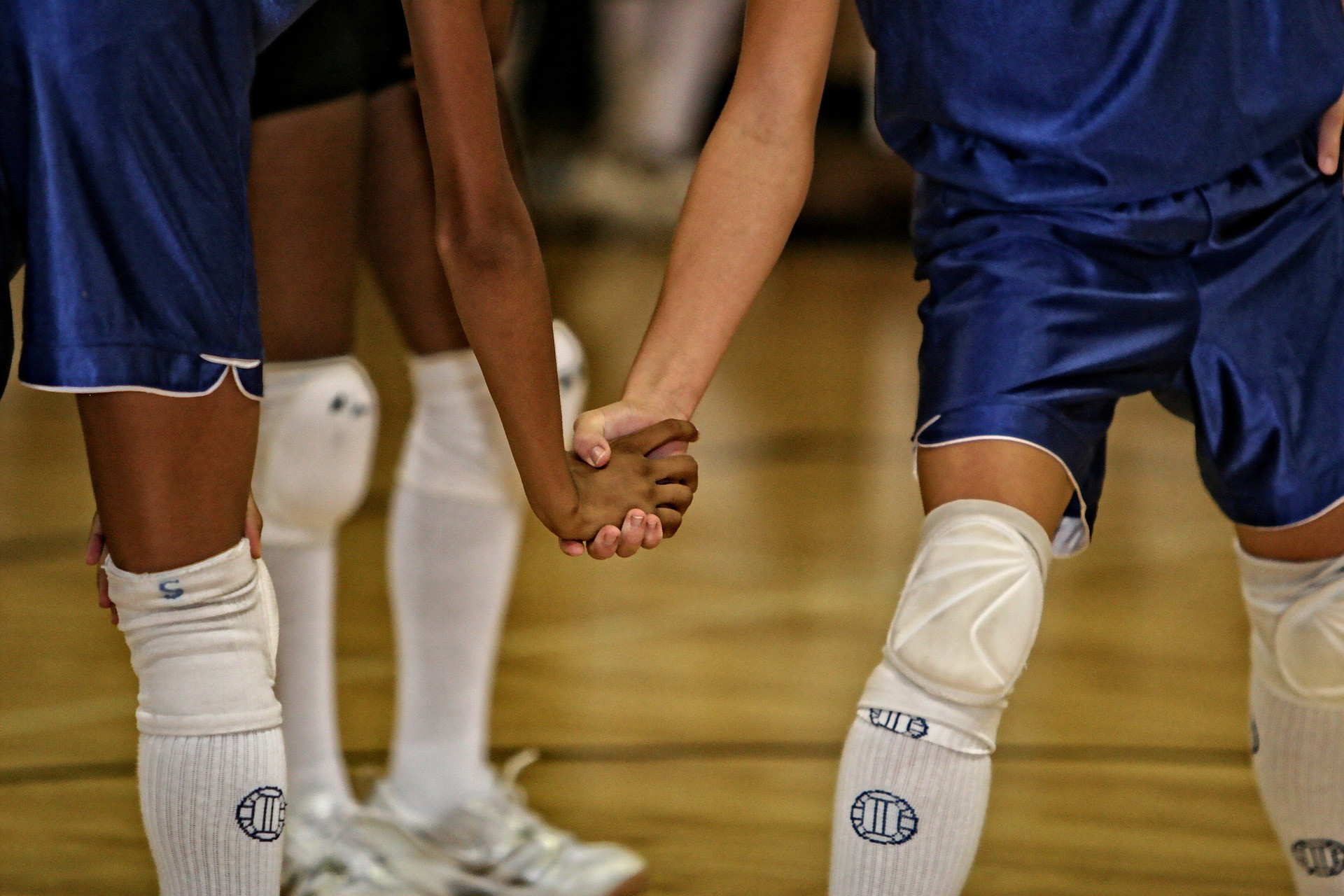
What to do in order to avoid such situations and how to help your athletes
In real life and in Volleyball, we can follow some rules, lists of ideas, timelines etc. But we shouldn’t forget that no case is at 100% similar with another one. From my point of view, you, as a coach, should always have an invisible bell behind your back reminding you that you are working with another human being, and you need to treat them firstly with empathy to understand what the real problem is.
It is of utmost importance to make it clear that we are all different human beings, with different characters and approaches to life, and as such, we are also different as athletes.
The mission of the coach is to try building up from this group of different persons a team that works as a whole. The tricky part, in my opinion, is to be able not to smash the different personalities by trying to create THE team, but to guide them towards the common values and help them identify as individuals with these values.
Educating these values, we mustn’t forget about the “mental health” of our players and, consecutively, about their “mental strength”. As much as these concepts are connected and go hand in hand, and we often perceive them as one, I would agree with the statement that these are two different elements, and we must face them and work on them as different concepts.
Vocabulary
I do believe that it is very important to have the right understanding of the terminology, even though coaches are not required to be certified psychologists. Knowing better the differences between the concepts, might actually help you when facing the individual situation.
What’s … ?
Mental health
According to the World Health Organization (WHO)
“Mental health is a state of well-being in which an individual realizes his or her own abilities, can cope with the normal stresses of life, can work productively, and is able to make a contribution to his or her community.”
Mental toughness
“Mental toughness is a measure of individual resilience and confidence that may predict success in sport, education and the workplace” , we understand from the article by Ying Lin, Julian Mutz, Peter J. Clough and Kostas A. Papaggeorgiu.
We can hear this a lot in the sports world - it is a concept that became famous in the past years, referring to a set of mental skills that a person can possess or develop, to become a better athlete.
Mental strength
“Mental strength is the capacity of an individual to deal effectively with stressors, pressures and challenges and perform to the best of their ability, irrespective of the circumstances in which they find themselves”(Clough, 2002).
Resilience
“Psychologists define resilience as the process of adapting well in the face of adversity, trauma, tragedy, threats, or significant sources of stress—such as family and relationship problems, serious health problems, or workplace and financial stressors”, we read on the site of the American Psychological Association.
We might add that in the Volleyball context, resilience will be the capability of getting back on your feet after a hard loss, and finding within ourself the motivation of going on.
Mental health vs mental strength?
Amy Morin, LCSW, has a good explanation on the matter, comparing mental health and mental strength to physical health and physical strength. Both are correlated; you need to be mentally healthy to build up on the strength, and on the other hand, working on your mental strength can help you improve your mental health.
.jpg)
Why do we need all this in Volleyball?
If you are lucky enough to be working in Volleyball on a professional level, you will know that the best part of the game are the exciting rallies. Players from the team fight for each ball, trying to have each other’s backs, always being prepared that the next touch might be theirs. Sometimes, and to the satisfaction of spectators, these rallies are really long. Ball after ball, the tension grows and many times we watch the so called “cat-and-mouse game of nerves”. In such games, the team that is better mentally prepared is the one that emerges victorious.
At such high levels, the technical capabilities of a player or a time do count, of course, but what makes the difference is their execution. And good execution, including smart plays, are possible only when a good set of mental skills is shown.
On a more general note, and to underestimate, of course, Volleyball players need this mental set of skill to achieve greater goals such as winning tournaments, qualifying for important competitions etc. During such long processes, staying in good physical shape is mandatory, but working on the mental side of things should be also on the “To-do-list”.
Problems that might arise
Now that we are familiarized better with the different concepts (and I do hope that this could help you to better identify situations within your team), let’s talk about the possible problems that your players might face.
- High expectations on the field
- Burnout
- Lack of resilience
- Lack of self-confidence
- Lack of motivation
These are, of course, only a short list of issues; but as said before, it is important that coaches try to have an individual approach to the player.
What can be the possible solutions facing the above-mentioned problems?
- High expectations
This is something that some of the ‘star’ players of the teams might be suffering from. Developing as professional players, they usually get used to living with these expectations and develop self-care mechanisms. However, sometimes this doesn’t work properly and coaches should be careful with younger and talented players that are not used to be in the spotlight. Again, the individual approach and the trust building, are the core elements of making it through such situations. It should be clear to the player that striving for the trophy is the team’s goal, but the responsibility is for all the players, not only up to the ‘stars’.
- Burnout
Burnout is a state of emotional, physical, and mental exhaustion caused by excessive and prolonged stress. Prolonged stress in the field of Volleyball, would mean seeking for excellence in matches, tournaments and trainings for a longer period of time without working on the coping mechanisms that a player should develop in order to keep their mental health.
“Yes, I am imperfect and vulnerable and sometimes afraid, but that doesn't change the truth that I am also brave and worthy of love”, we read in the “The Gifts of Imperfection” by U.S. researcher and storyteller Brené Brown. Interpreting this quote
in the Volleyball context, I would suggest that burnout in sports comes through when athletes forget to show their vulnerability and always keep the speed high. It is actually related to the high expectations. Even though mental toughness is needed here and should be trained, not to underestimate is the fact of giving the athlete the perception of being valued.
- Lack of self-confidence - self-confidence is built in time and requires a lot of determination. Working towards creating it, it could help to have conversations around visualization of the success. Discussing facing the errors is also an important element as errors are inevitable and self-confidence cannot be built without the acceptance of the fact that errors not always define the player, and it is all very much objective.
Lack of motivation - it does sound odd that a player might lose their motivation for giving it their best on the field, and is often mistakenly considered as losing one’s love to the game. Unfortunately, as in every psychological aspect, it is not that easy and a player can be “in love with the game”, yet be suffering finding their motivation. The reasons may vary - from having had too many victories to having had too many high-stressed situations. In the first case, a coach’s goal is to light the fire again, and help the player find again the inspiration. To be able to do so, a progressive work toward improving mental health is needed. In the second case, when a player is affected by too much stress, a combination of work on mental toughness and resilience could help.
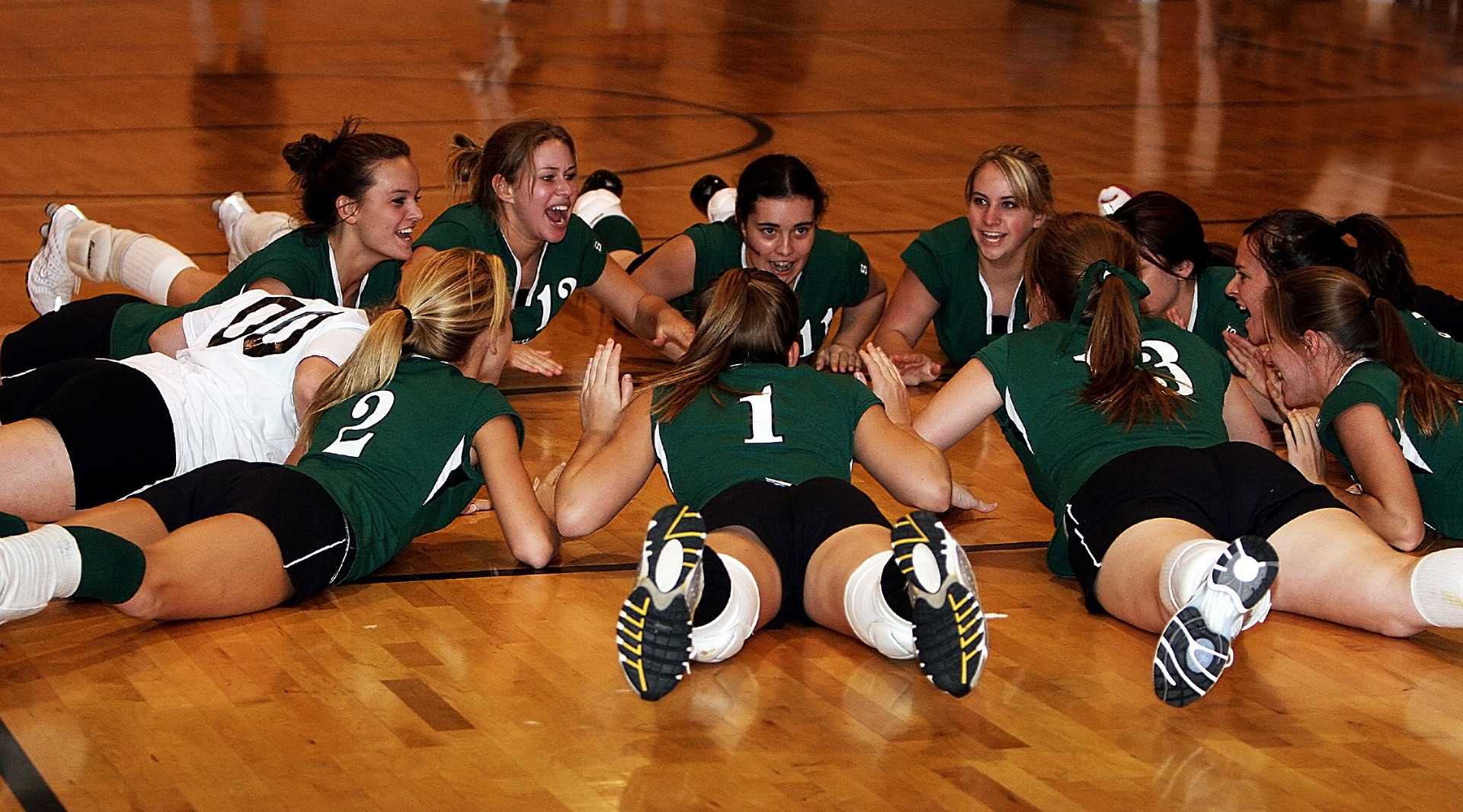
To sum up, avoiding situations when your players might not feel at their highest is almost impossible.
But coaches can do their best to solve them in the kindest way possible. Furthermore, and ideally, some continuous pre-work towards improved mental health should be done by the team. Working on the following, can be beneficial for the general team mental health.
- Positive approach - as hard as it is sometimes, teams should try to approach the trainings and matches positively. That would mean that the players enter the hall knowing they are entering a place where they will need to face challenges, but that doesn’t mean, it should be an impossible and unpleasant journey.
- Set realistic goals - always striving for the best is mandatory on the Volleyball field, but making it clear what is realistic and what is not, is very important for your players’ mental health, and it can actually help them give even more on the field, playing free of the high expectations.
- Have fun together! - Give breaks! Try to find the perfect balance between requiring 100% in the hall and giving your players some breaks. Set your “empathy clock” and try to approach your players depending on what the clock is telling you.
Your turn! Ask yourself!
How do you help your team shaping up a better mental health and toughness?
Stay tuned as in the next blog post we will be talking to the Italian Volleyball icon - Maurizia Cacciatori, a motivational speaker who will teach us more on “coaching with empathy” and “the values of the team”.
NB The views exposed in this article are mine and not medically reviewed. They are based on my experience in a Psychological course on Motivation and my years spent in Volleyball.

